Afatinib 30 mg
Afatinib 30 mg is a targeted therapy used in the treatment of non-small cell lung cancer (NSCLC) with specific EGFR mutations. It works by blocking abnormal protein signals that cause cancer cells to grow and multiply.
About Afanat 30 Tablet
Afanat 30 Tablet is an anti-cancer medicine used in the treatment of non-small cell lung cancer (NSCLC). It is a common form of lung cancer in which abnormal cells grow in the lung tissues. Afanat 30 Tablet is used as a first-line therapy in the treatment of metastatic NSCLC with non-resistant epidermal growth factor receptor (EGFR) mutations and in patients with metastatic, squamous NSCLC progressing after platinum-based chemotherapy.
Afanat 30 Tablet contains Afatinib as an active ingredient, which belongs to the class of medicines known as kinase inhibitors. It works by stopping the action of an enzyme (tyrosine kinase) that causes the multiplication of cancerous cells. This helps stop the abnormal growth of cancer cells and thus reduce the further spread to other parts of the body.
Afanat 30 Tablet may cause certain side effects such as diarrhea, rash, decreased appetite, nausea, vomiting, dry skin, mouth sores, nail inflammation, ache, cough, abdominal pain, and itching. These side effects do not require medical attention and gradually resolve over time. However, if the side effects persist or worsen, please consult your doctor. Afanat 30 Tablet should be taken as advised by your doctor. Do not take more than the recommended dose. Your doctor will decide the dose of Afanat 30 Tablet based on the severity of your condition.
Avoid taking Afanat 30 Tablet if you are allergic to it or any other components of it. Before taking Afanat 30 Tablet , inform your doctor if you have/had liver or kidney disease, eye problems, lung disease other than lung cancer, heart problems, and breathing difficulty. This medicine is known to cause embryo-fetal toxicity. It is not recommended for use in pregnancy and breastfeeding. Elderly people are more sensitive to medicine, so the dose may have to be adjusted according to their condition.
Side Effects of Afanat 30 Tablet
- Acne
- Dry skin
- Nausea
- Vomiting
- Diarrhoea
- Loss of appetite
- Itching or skin rash
- Mouth sores
- Cough
- Nail inflammation
- Visual disturbances
- Abdominal pain
Uses of Afanat 30 Tablet
Directions for Use
Medicinal Benefits
Afanat 30 Tablet contains Afatinib, which belongs to the class of medicines known as kinase inhibitors. It works by stopping the action of a tyrosine kinase enzyme that causes the multiplication of cancerous cells. This helps stop the abnormal growth of cancer cells and thus reduce the further spread to other parts of the body. It also decreases the blood supply to cancer tumors to slow down the growth of the tumor. In this way, Afanat 30 Tablet stops the body’s production, spread and growth of cancerous cells.
How Afanat 30 Tablet Works
Storage
- Inform Your Doctor: Notify your doctor immediately about your diarrhoea symptoms. This allows them to adjust your medication or provide guidance on managing side effects.
- Stay Hydrated: Drink plenty of fluids to replace lost water and electrolytes. Choose water, clear broth, and electrolyte-rich drinks. Avoid carbonated or caffeinated beverages to effectively rehydrate your body.
- Follow a Bland Diet: Eat easy-to-digest foods to help firm up your stool and settle your stomach. Try incorporating bananas, rice, applesauce, toast, plain crackers, and boiled vegetables into your diet.
- Avoid Trigger Foods: Steer clear of foods that can worsen diarrhoea, such as spicy, fatty, or greasy foods, high-fibre foods, and dairy products (especially if you’re lactose intolerant).
- Practice Good Hygiene: Maintain good hygiene to prevent the spread of infection. To stay healthy, wash your hands frequently, clean and disinfect surfaces regularly, and avoid exchanging personal belongings with others.
- Take Anti-Diarrheal Medications: If your doctor advises, anti-diarrheal medications such as loperamide might help manage diarrhoea symptoms. Always follow your doctor’s directions.
- Keep track of your diarrhoea symptoms. If they don’t get better or worse or are accompanied by severe stomach pain, blood, or dehydration signs (like extreme thirst or dark urine), seek medical help.
- Skin rash caused by allergies is due to irritants or allergens. Therefore, avoid contact with such irritants.
- Consult your doctor for proper medication and apply an anti-itch medication. Follow the schedule and use the medication whenever needed.
- Protect your skin from extreme heat and try to apply wet compresses.
- Soak in the cool bath, which gives a soothing impact to the affected area.
- Skin rash caused by allergies is due to irritants or allergens. Therefore, avoid contact with such irritants.
- Consult your doctor for proper medication and apply an anti-itch medication. Follow the schedule and use the medication whenever needed.
- Protect your skin from extreme heat and try to apply wet compresses.
- Soak in the cool bath, which gives a soothing impact to the affected area.
- Know your allergens that cause dermatitis and avoid them.
- Use fragrance-free detergents and soaps.
- Apply moisturizer after taking bath to retain moisture in the skin.
- Apply cool, moist compresses to the rash.
- Talk to your doctor about creams and ointments to manage your dermatitis.
- Soak the infected nail in warm water for 10 to 20 minutes, a few times a day.
- Apply topical antibiotic ointment as advised by the doctor.
- Avoid irritants and excessive moisture.
- Apply moisturizer immediately after showering or bathing.
- Use a moisturizer containing lanolin, petroleum jelly, glycerine, hyaluronic acid or jojoba oil.
- Do not use hot water for bathing. Instead use warm water and limit showers and bath to 5 to 10 minutes.
- Apply a sunscreen with SPF-30 or higher.
- Avoid harsh soaps, detergents and perfumes.
- Do not scratch or rub the skin.
- Drink adequate water to prevent dehydration.
- Wear pants, full sleeves and a wide-brimmed hat while going out in the sun.
- Consume more protein-rich foods and healthy fats like beans, avocados, cheese, nuts and lean meats to minimize appetite.
- Prefer foods high in fiber to help feel full for a long time.
- If you have decreased appetite, eat only when you are hungry.
- Eat several small meals or snacks all day.
- Try to take only small sips of fluids while eating.
What if I have taken an overdose of Afanat 30 Tablet
Drug Warnings
To treat your condition effectually, continue taking Afanat 30 Tablet for the period that your doctor has prescribed. Avoid taking Afanat 30 Tablet if you are allergic to it or any other components present in it. Caution should be exercised if you have/had liver or kidney disease, eye problems, lung disease other than lung cancer, heart problems, severe cough, and breathing difficulty. This medicine is known to cause embryo-fetal toxicity. Hence, inform your doctor if you are pregnant or are planning to become pregnant before starting the treatment. Afanat 30 Tablet may cause severe diarrhea, Bullous and exfoliative skin disorder, hepatotoxicity, Interstitial lung disease, and keratitis in some patients. Hence, inform your doctor about your complete medication and medical history before taking Afanat 30 Tablet . Breastfeeding should be discontinued in nursing mothers during the treatment as it passes into breast milk and may cause a possible risk to the infant. Avoid driving and operating machines, as this medicine may cause visual disturbances. This medicine is not recommended for use in children below 18 years of age as the safety and efficacy are not established.
| Quantity |
|---|

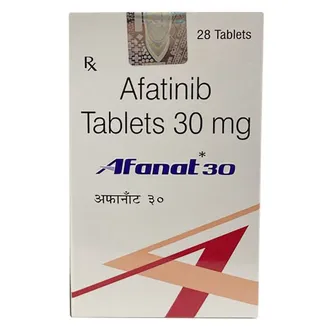
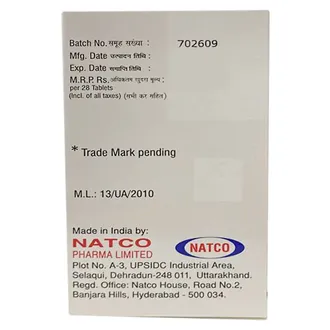
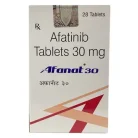

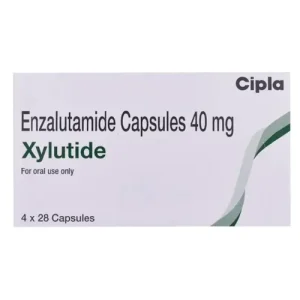
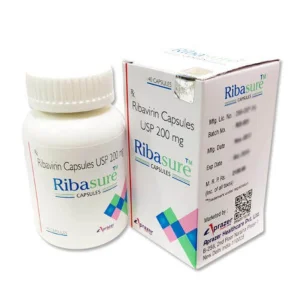
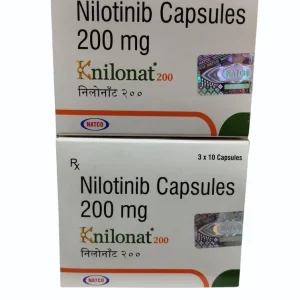
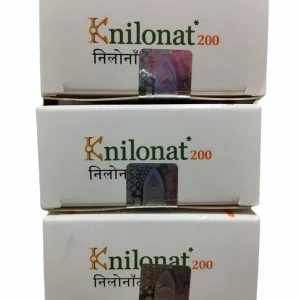
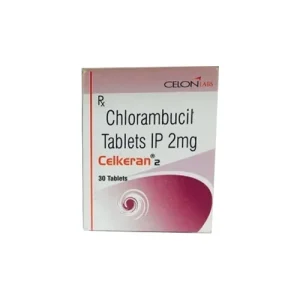
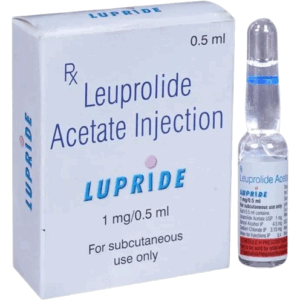
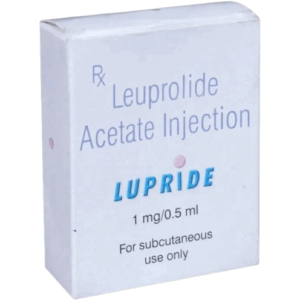
Reviews
There are no reviews yet.